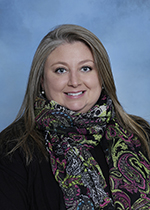
Change Is Terrible and I Love It!
After working in higher education for over 17 years, the one thing I know for certain is that change is inevitable. Some changes are gradual and happen over time, others seem to happen in the blink of an eye. Some changes we embrace, some not so much.
If you talk to anyone that has been with OCTC, or any higher education institution, for a number of years, they will likely tell you that they started in position A, moved to position B, and are now in position C. Many will share stories of former colleagues, what various spaces were previously used for, and how much the college has changed over the years.
For a bit of perspective, during my time at OCTC, I have:
- Worked in four different departments,
- Been led by five different college presidents,
- Had five different offices in four different buildings, and
- Reported to six different supervisors.
Many of us have experienced the closing of programs and the beginning of new ones, beloved colleagues retiring or moving on to new adventures, budget cuts (an example of a change not embraced), hiring freezes, and a litany of others.
Something else I know from working in higher education is that no matter what the ups or downs might be, we will get through them. Is there any better proof of our ability to persevere than the pandemic? Sure didn’t see that one coming now did we? Yet we did what we had to do and came out on the other side.
Changes in Higher Education
Those of us in higher education recognize that numerous changes are on the horizon. Two of the most prevalent changes are:
- Enrollment cliff
- Artificial intelligence (AI)
These changes are daunting, frightening, cumbersome, exciting, invigorating, etc. (choose whichever adjective you think fits best).
Considering the Options
Most will agree that change of any kind is difficult. We tend to get comfortable with where we live, where we work, what we do, and how we do things. Throw a change in the mix and now the balance is off kilter. We have two options when it comes to dealing with change:
- Throw in the towel and give up or
- Learn to grow from it.
Learning to grow from change is not always easy, but most things worth doing are not.
When I think about my OCTC experiences mentioned above, I realize I have learned a lot about myself because of them. For one, I have entirely too much stuff and it makes moving offices terrible. Luckily, I am fortunate to work with some great people that offer help when they see you carrying a refrigerator down the sidewalk. I also have to acknowledge that we have received some pretty cool OCTC swag over the years.
As a result of changing offices and getting to know different people, I have learned that we all offer something unique to the campus culture. A lot of great new ideas were shared during the Strategic Plan Focus Group Sessions. I found myself thinking about how I have been here all these years and never came up with that idea. Someone had a unique perspective and likely has great ideas for addressing the enrollment cliff. While this isn’t really a change to be embraced, we can all focus on our uniqueness and share whatever ideas we may have on how to conquer and succeed.
As a result of changing positions, I have also learned that I am still capable of learning new things, as are you. Am I an expert on experiential learning or accreditation? No. Have I learned a lot about experiential learning and accreditation? Yes! Being open to learning new things can transform certain changes into exhilarating opportunities rather than intimidating challenges. Focusing solely on the negative aspects of students using AI will only hinder progress. Don’t we want our students to be the best of the best? To be prepared for what they may experience in their career? AI is going to be part of that experience, so I encourage all of us to learn what AI has to offer. This is one of those changes we need to embrace.
I challenge you to focus on developing a growth mindset as we face these, and other, changes no matter how disruptive or uncomfortable they may be. And in case you have not been told lately, you are valued, you are appreciated, and you got this!

Nicole Ralph currently serves as the SACSCOC Accreditation Liaison and oversees strategic planning efforts as OCTC's Associate Dean of Institutional Effectiveness. She holds Master of Public Administration and Bachelor of Science in Business degrees from Western Kentucky University.
